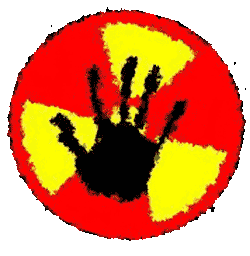Prevent nuclear terrorism
- By Li Hong
 0 Comment(s)
0 Comment(s) Print
Print E-mail China Daily, March 23, 2012
E-mail China Daily, March 23, 2012

The upcoming Nuclear Security Summit in Seoul on March 26-27 will further discuss global cooperation in preventing nuclear terrorism. Although no nuclear terrorist attack has been reported so far, nuclear and radioactive materials and related technologies are widely used and the possibility of a nuclear terrorist attack does exist.
According to the International Atomic Energy Agency, there have been a total of 2,164 incidents involving the loss, theft or unauthorized possession of nuclear and radioactive materials from 1993 to 2011, and the Fukuyama nuclear crisis in Japan has demonstrated that an attack on the diesel-driven emergency power supply system, fuel rods and other key parts of a nuclear power plant could trigger a nuclear disaster.
The international community has made great efforts to prevent nuclear terrorism. The United Nations Security Council adopted resolution 1540 in 2004 to prohibit any non-state actor acquiring or manufacturing weapons of mass destruction, including nuclear weapons. Resolution 1887 was adopted at a summit in 2009 on nuclear non-proliferation and nuclear disarmament aimed at strengthening the implementation of resolution 1540. It urged all countries to ensure the security of especially vulnerable nuclear weapons materials to prevent nuclear terrorism.
At the first Nuclear Security Summit in 2010, global leaders reached a consensus on the seriousness of the threat of nuclear terrorism and the necessity of working together to reduce such threats and produce a detailed work plan to counter the illicit trafficking of nuclear materials.
Nuclear security has received greater attention since the summit, which led to strengthened international cooperation and greater efforts at nuclear security. For instance, Ukraine was one of the countries to pledge to remove highly enriched uranium from its territory, and the United States, China and other countries have expanded cooperation in converting reactors to the use of low-enriched uranium rather than highly enriched fuel.
Even so, nuclear terrorism remains a real threat. First of all, while there is no exact figure, the Bulletin of Atomic Scientists estimates that there are more than 19,000 warheads worldwide and according to the International Panel on Fissile Materials, as of January 2012 the global stockpile of highly enriched uranium was about 1,440 tons and a stockpile of about 500 tons of separated plutonium, a sum large enough to produce 100,000 nuclear warheads. Any loopholes in securing these materials could be exploited for terrorist purposes.
Second, participating countries are struggling - with uneven success due to their different political, economic and technological limits - to implement the related resolutions. The Convention on the Physical Protection of Nuclear Material, which came into effect in 1987, is the only legally binding instrument for the physical protection of nuclear materials and their international transportation. A 2005 amendment extended this to make it legally binding to protect nuclear facilities and material in peaceful domestic use, storage and transport. But quite a number of the party countries have yet to ratify it.
Third, the widespread civil use of nuclear materials makes it more difficult to prevent nuclear terrorism. Nuclear materials such as highly enriched uranium and plutonium are widely used in the nuclear power industry, agriculture, medicine and scientific research. The stockpile of nuclear fuel is increasing because of the growing number of nuclear power plants around the world.
Fourth, the supervision of radioactive sources and materials, which exist in greater numbers than fissile materials, remains weak, and these can be used by terrorists to make "dirty bombs" to blast radioactive materials into populous areas and trigger social panic.
It is imperative that all countries safeguard their nuclear and radioactive materials and facilities and strengthen nuclear export control. States with nuclear weapons should tighten control to prevent any loss or unauthorized use.
Prevention of nuclear terrorism is a long-term task that requires greater international efforts, including a comprehensive approach to reducing nuclear weapons to boost the global nuclear security environment.
All countries should also enhance nuclear security cooperation by helping developing countries improve their nuclear security capabilities and cracking down on the illicit trading of nuclear and radioactive materials. It is also necessary to promote a global nuclear security culture to assure the establishment of a multi-level preventive mechanism that combines the efforts of governments, companies and non-governmental organizations. The International Atomic Energy Agency, experienced in advancing nuclear security technologies, prescribing specific legislation and promoting nuclear security culture against different social backgrounds, should play its full role to facilitate this.
The upcoming Nuclear Security Summit will seek to tackle nuclear terrorism through multilateral negotiations and cooperation in areas such as detection and forensics. We have every reason to believe that continued joint efforts will effectively curb and finally eliminate the threat of nuclear terrorism.
The author is secretary-general of the China Arms Control and Disarmament Association.






Go to Forum >>0 Comment(s)